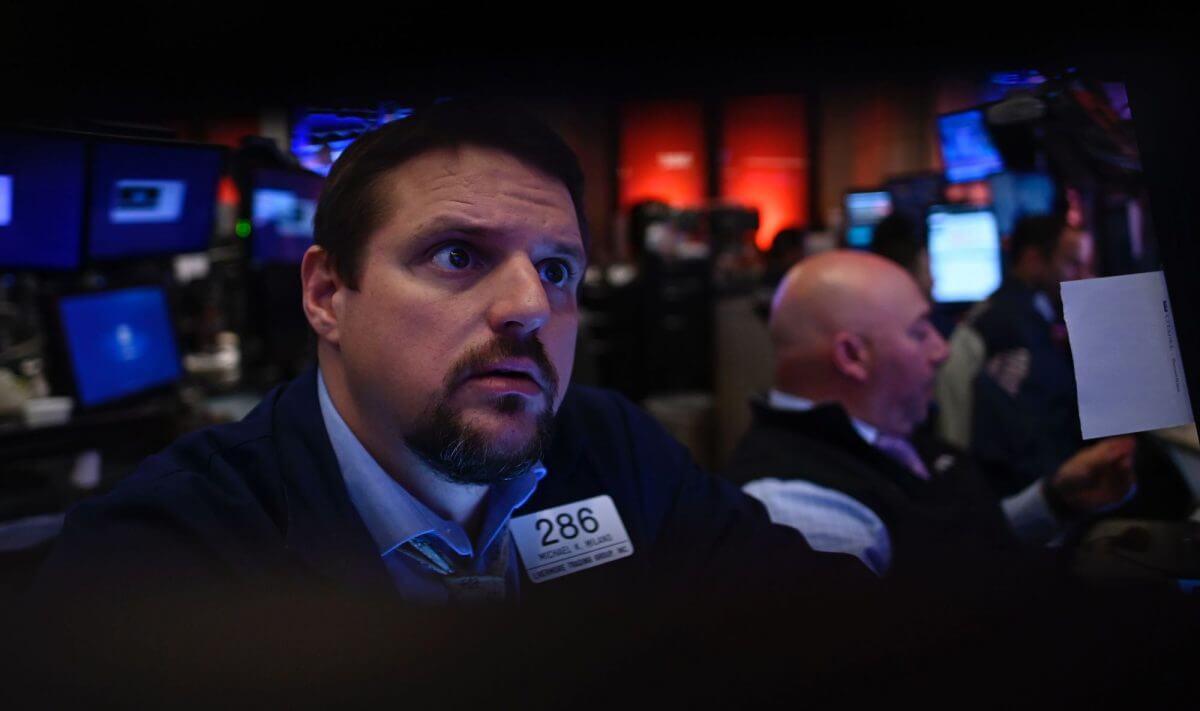Jerome Powell and the Federal Reserve should maintain some faith in the U.S. economy. | Source : NICHOLAS KAMM / AFP
- The Federal Reserve’s FOMC meets on Wednesday.
- Given soaring unemployment, some economists are calling for negative interest rates.
- After years of failed policy in Europe and Japan, the U.S. should steer clear of this deflationary death-trap.
The Federal Reserve meets next Wednesday, as the FOMC will decide on interest rates, which currently sit at record lows in the 0% to 0.25% band.
Given the enormous economic damage to the United States from the coronavirus shutdown, some analysts are calling for negative rates. Here’s why Jerome Powell should resist taking the plunge into this unchartered territory.
How Did Negative Rates Work Out In Europe Or Japan?
Japan, Denmark, Sweden, and the Eurozone. What do all these countries have in common? All their central banks have employed interest rates below zero. Have their policies been effective in rejuvenating their economies? Absolutely not.
There is no evidence that the United States would benefit from employing these same tactics.
After a decade of world-leading economic stability, the U.S. economy has demonstrated its resilience and diversity.
As the coronavirus takes a massive chunk out of the global economy, few countries had any meaningful stimulus bullets left to fire to counteract the downturn.
The United States did, and credit to Jerome Powell and the FOMC for standing up to Donald Trump’s bullying.
The situation would have been a lot darker had the President been able to make interest rates zero while the economy was booming right before such a dramatic downturn.
Faced with unprecedented layoffs and a massive contraction in GDP, the FOMC has expanded its balance sheet in the most dramatic fashion ever, above $6 trillion, with some forecasting it could go over $10 trillion.

 Source: Board of Governors of the Federal Reserve System (U.S.)
Source: Board of Governors of the Federal Reserve System (U.S.)
They also slashed the prime rate to the 0 to 0.25 percent bound. All this is justified in the eyes of Powell, who is doing his equivalent of Mario Draghi’s famous “whatever it takes” response to the European crisis.
This is where the buck must stop. The systemic importance of the U.S. dollar to the global economy is vast, and while the Fed wants to weaken it, it can’t risk losing control of the USD.
Negative interest rates are the calling card of a sick economy. Even positive rates around zero are a sign that something is broken. As billionaire Leon Cooperman recently stated in an interview,
“Consistently low-interest rates are indicative of a troubled economy and should not be viewed positively,”
Federal Reserve Study Suggests Interest Rates Can Go Sub-Zero Safely
In a prominent Bloomberg Opinion piece, Narayana Kocherlakota, a university professor, and former Federal President, recently made a case for the Federal Reserve to take the United States prime interest rate into negative territory.
In this piece, Mr. Kocherlakota claims that bank profitability may not be as severely affected by sub-zero interest rates as some believe. This is not a new idea, as, in 2019, the Federal Reserve of San Francisco published a detailed research piece where it concluded precisely that, stating,
Central banks around the world must then be careful when setting negative policy rates and they must take steps to minimize their negative impact on banks’ profits. However, the estimates in this paper for the relative efficiency of monetary policy in negative territory are relatively high, and indicate that the effect on commercial bank equity could be less detrimental than previously thought.
This tells us one big thing, namely that negative interest rates are a realistic possibility in the United States, whatever Fed Chair. Jerome Powell might say.
Maintaining faith in the exceptionalism of the U.S. economy should be the central thesis of the Fed’s approach. By always having one more bullet than the rest of the world, Powell can rest assured that no matter how bad things get elsewhere, he still has something in the tank.
FOMC Faces a Huge Decision On Wednesday
Negative rates are the central bank equivalent of giving up. Deflation, not inflation, is the calling card. Recent moves by the Federal Reserve to purchase corporate debt has it looking dangerously like the BoJ, with Japanification and the resulting “zombie market” a potential outcome. Who knows what they might buy next.
While these policies slow down an economic downturn, they freeze economic cycles and concentrate risk into dangerous asset bubbles.
On Wednesday, the FOMC must resist the calls even to discuss negative rates. The U.S. must look to the stars, while the rest of the world’s central banks prefer the gutter.
Disclaimer: The opinions expressed in this article do not necessarily reflect the views of CCN.com.
This article was edited by Aaron Weaver.



